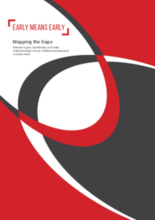This report identifies key communications challenges faced by experts and advocates as they seek to elevate support for public policies that will best serve the developmental needs of all children in South Africa. The report provides an initial set of strategic recommendations for how best to communicate the expert story in ways that expand public understandings of early childhood development and build support for policies and programs that leverage this connection.
The first phase of research for the project was conducted between November 2015 and April 2016 and involved three tracks of research.
- The first identified a shared scientific expert story—what FrameWorks calls an “untranslated expert story”—of early childhood development. This story includes explanations of what develops in children, how development happens, and what threatens it, as well as policy and programmatic directions that experts argue would best serve children’s development in the South African context.
- The second track of research identified the patterns of thinking that members of the South African public use to reason about early childhood development.
- The third and final track examined how stakeholders – people working in government and implementation in the ECD sector—understand these same topics.
The research on public understandings presented here is distinct from other public opinion research based on polls or focus groups that documents what people say. The research described here documents how people think, and deconstructs the assumptions and thought processes that inform what people say and how they form judgments and opinions. This cultural-cognitive approach is powerful because identifying ways of thinking is key to developing more effective and strategic communications. By understanding the various ways that people do (and do not) think and reason about an issue, communicators can craft messages that activate productive understandings, avoid unproductive ones, and engender new ways of thinking that are better aligned with policy goals. In short, an understanding of how people think is a powerful tool in identifying the specific ideas that require reframing and in designing effective translation strategies.

